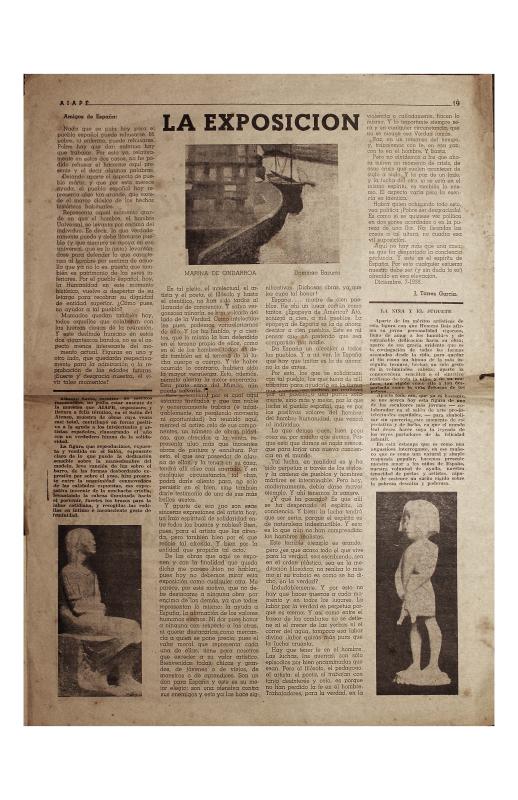All signs suggest that this exhibition was organized by intellectuals who were members of the Ateneo de Montevideo, the Comité Nacional de Ayuda al Pueblo Español (whose headquarters was in Montevideo), the AIAPE (Agrupación de Intelectuales, Artistas, Periodistas y Escritores), and other independent groups and associations that were anti-government at a local level and anti-fascist in their international outlook.
The text of the statement called on every artist to align themselves with ideologically compatible groups by accepting their responsibility and supporting causes related to their shared human values and the heritage of Western culture. This “obligation” that history imposed on artists and intellectuals was of a distinctly moral nature, and reflected the emergence of a political aesthetic (in the broader, non-partisan sense of the word) that became even more pronounced in the 1940s. In the case of Spain, the call was issued to rally in defense of “democracy, liberty, and justice against the most egregious example of oppression […] and reactionary policies the world has ever seen […].” The statement also reminded readers of the artistic heritage in Spain and the need to defend it against Franco’s bombardments. Ultimately, the statement was based on an ethical commitment “to defend culture,” which was a paraphrased version of the AIAPE’s founding principle. Joaquín Torres García repeated this universalist humanist appeal some months later in his speech at the exhibition in support of Spanish intellectuals that was organized by the AIAPE, also at the Ateneo de Montevideo [see in the ICAA digital archive “La exposición [Amigos de España:]” (doc. no. 1191197)].

